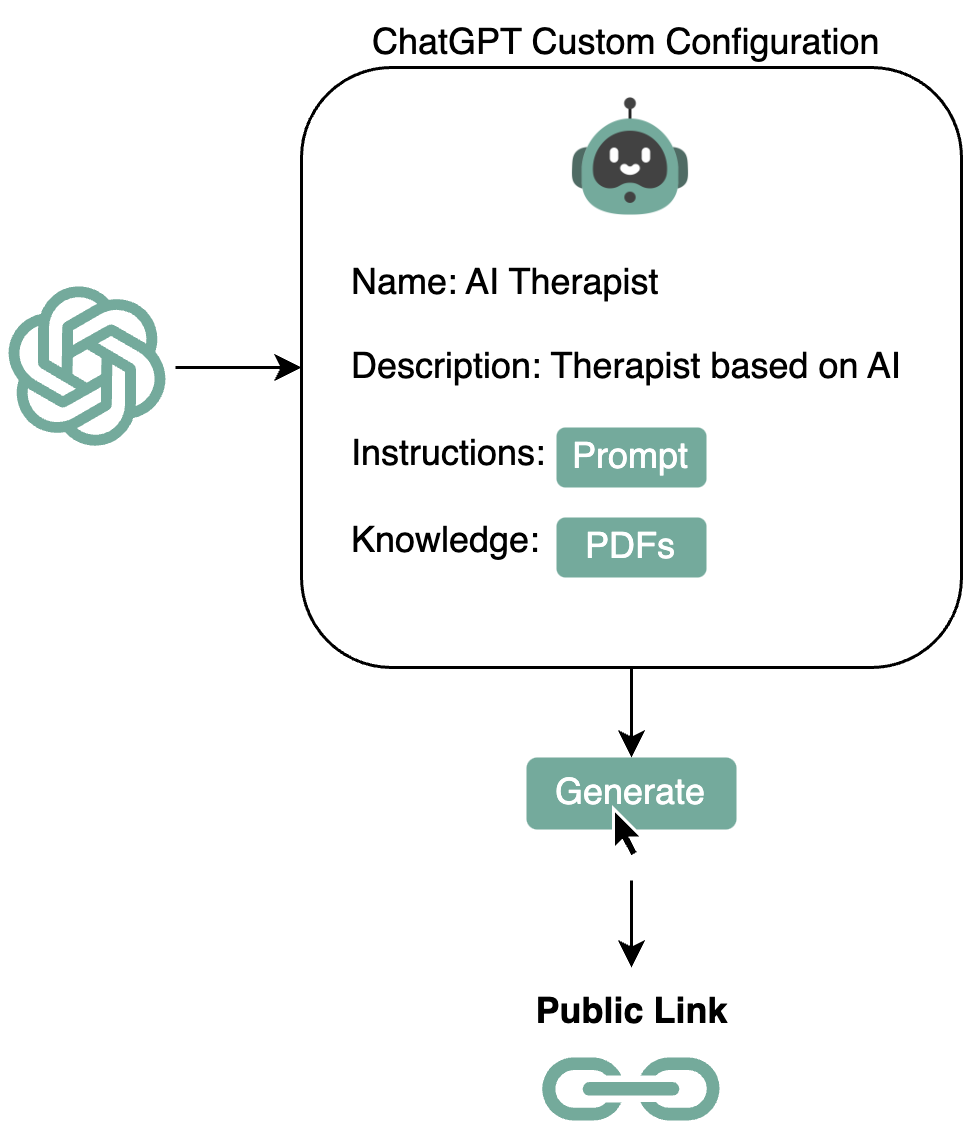We are thrilled to share that our research paper has been published in the volume 9 of Healthcare Journal.
- Flowchart to generate a custom ChatGPT.

Our latest research paper presents a pioneering study on the integration of ChatGPT, a large language model, into therapeutic settings for children with Attention Deficit Hyperactivity Disorder (ADHD).
This work delves into how AI can significantly enhance ADHD treatment methods beyond conventional pharmacological approaches. By employing the Delphi method for systematic forecasting and involving a panel of child ADHD therapy experts, the study assesses ChatGPT’s effectiveness in simulated therapy scenarios. It explores ChatGPT’s capabilities in empathy, adaptability, and communication, aiming for a responsible integration of AI into healthcare to positively impact therapy and patient care. While showcasing the potential benefits of ChatGPT in ADHD care, such as personalization and accessibility, it also highlights the need for enhancements in privacy, cultural sensitivity, and interpreting nonverbal cues. The study emphasizes the importance of merging technological innovation with a comprehensive understanding of patient needs and ethical considerations, paving the way for a new era of AI-assisted therapy .
Key Findings:
This study presents notable findings on integrating ChatGPT into ADHD therapies:
- Strengths in empathy, adaptability, and communication, indicating ChatGPT’s potential to enhance ADHD care with personalized interactions.
- Provides personalized therapy by tailoring sessions to each child’s needs, crucial for effective ADHD management.
- Increases accessibility to therapy, offering immediate support, especially beneficial for individuals in remote areas.
- Improves engagement and motivation through interactive and personalized sessions, keeping children focused and interested.
- Ensures consistency in therapeutic strategies, aiding habit formation and symptom management.
- Helps reduce mental health stigma, encouraging open expression in a nonjudgmental space.
- Generates data-driven insights for guiding treatment strategies based on interaction analysis.
- Supports caregivers and educators with strategies for managing ADHD symptoms and creating supportive environments.
- Identifies areas for improvement, particularly in confidentiality, privacy, cultural sensitivity, and interpreting nonverbal cues, underscoring the need for ethical considerations and ongoing refinement in AI’s healthcare applications.
Citation
Future of ADHD Care: Evaluating the Efficacy of ChatGPT in Therapy Enhancement.
Santiago Berrezueta,
Mohanad Kandil,
María-Luisa Martín-Ruiz,
Iván Pau de la Cruz, and
Stephan Krusche.
In: Healthcare, Volume: 12.
March
2024.
doi: 10.3390/healthcare12060683